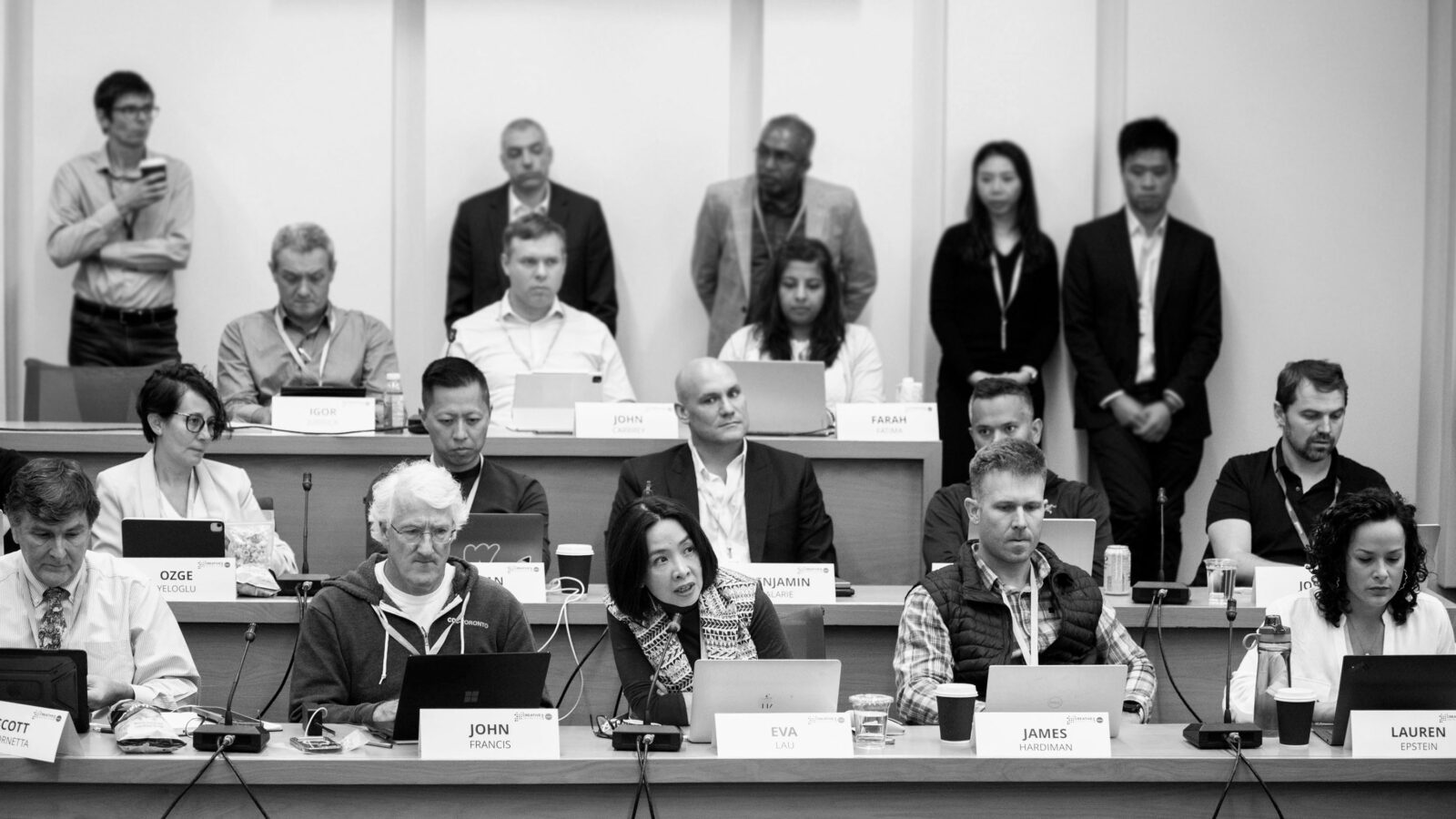Paul Graham, best known as a founder of Y-Combinator, likes to ruminate on many topics. He favours the essay rather than the tweet. And he has been hard at work on two essays recently; one on structural change in the US economy and the other on inequality. While I suspect they are both coming from the same place, I want to concentrate on his post on inequality as I believe it reflects the feelings and views of many in Silicon Valley. Those views are, in my opinion, misplaced.
To begin, Graham opens strongly as to why he is interested in rising inequality claiming that he, personally, is “a manufacturer of economic inequality” in his role as a helper of start-ups.
Almost by definition, if a startup succeeds its founders become rich. And while getting rich is not the only goal of most startup founders, few would do it if one couldn’t.
I’ve become an expert on how to increase economic inequality, and I’ve spent the past decade working hard to do it. Not just by helping the 2400 founders YC has funded. I’ve also written essays encouraging people to increase economic inequality and giving them detailed instructions showing how.
Now it should not be surprising that if that is your view of yourself in the world, when you see people attacking economic inequality, you would tend to be defensive. And that is precisely what Graham proceeds to do: defend inequality.
Graham doesn’t say much that is new. He then rants. But his message is start-ups are good, those founding them have to work hard and therefore, need a reward. And the reward invariably means they end up with more of the pie than others. But that is OK because the pie is bigger.
He then goes on to qualify that he does not like bad behaviour such as avoiding taxes or using government to siphon wealth to yourself. And, moreover, that if we are worried about poverty then we should do more about poverty.
Finally, there is a subtext. He dislikes the approach of economists.
Traditional economists seem strangely averse to studying individual humans. It seems to be a rule with them that everything has to start with statistics. So they give you very precise numbers about variation in wealth and income, then follow it with the most naive speculation about the underlying causes.
Sadly, Graham does precisely the same thing except he ignores the statistics.
What Graham’s essay reflects is, I suspect, something pervasive in his world. Silicon Valley entrepreneurs have become rich — in reality and on paper. At the same time, inequality has become an issue in the public mind. They are stuggling with it because we haven’t seemingly come up with good ways of dealing with inequality without hitting all the rich with higher taxes. And they know that those who became rich because they gamed the system won’t be hit by this but those who became rich because they won the innovation game will. That, however, is an argument regarding what best to do about inequalit rather than whether it is good or bad per se.
With that somewhat long preamble, let me return to the point of this post that Graham’s essay inspired: the notion that entrepreneurship and inequality go hand in hand is I suspect a myth. There is no theoretical reason for this to be the case, certainly no moral reason, and, if I had to guess, it isn’t empirically true.
The Theory
The prevailing theory regarding entrepreneurship and inequality is what I call the Ted Baxter view. Ted Baxter, the news anchor in the Mary Tyler Moore Show, once espoused that he intended to have six children in the hope that one of them would come up with a solution to the population problem. Larry Summers put forward the inequality view supposing that the US had 30 more people like Steve Jobs and suggesting that would be a good thing even if it increased inequality. Thus, we accept inequality in the hopes of getting the fruits of entrepreneurship. (This is a common view).
It is unfair on Ted Baxter to raise Summers’ view to his level, however. Baxter’s path was to increase population in the short-term to decrease it in the long-run. Summers instead wanted to accept both higher inequality and higher entrepreneurship. Instead, I want to suggest that entrepreneurship, if it is done right, should be inequality reducing rather than increasing.
So let’s consider that. First, let’s accept that entrepreneurs need monetary rewards to do what they do. That is actually something that is controversial but I am an economist so I like to start there. Second, if an entrepreneur is going to end up with more money, that money has to come from somewhere. This assumption is a little different from the first. It is not behavioural but instead is a matter of accounting. Why reduce things to accounting? Well, if we observe inequality changing, it is because of a reallocation of something measurable. That tends to be money in the statistics — flawed though they may be — and so I use that. But it could easily be the number of bricks in houses or something like that. The premise is the same. At some level, something finite is being reallocated and that is what we are measuring because measures of inequality are always about whether someone is getting more than someone else.
Putting these two things together: will the fact that an entrepreneur now claims a reward where previously they do not lead to an increase in measured inequality? Part of the answer depends on what the candidate entrepreneur would have had if they had not earned their reward. For instance, if our entrepreneur has below-median wealth and then gets more, inequality falls rather than rises. But if our entrepreneur is already wealthy and gets more, inequality rises.
The other part of the answer depends on how the entrepreneur’s activities impact on the wealth of others; loosely, where the money comes from. If it comes, in aggregate, from people poorer than you, then inequality increases, otherwise it decreases. Again, what this tends to suggest that rewards to already wealthy people increase inequality while those to non-wealthy people decrease inequality.
This little bit of analysis should convince you that there is no necessary conflict between entrepreneurial reward and inequality — indeed, precisely the opposite — if we just look at where the money ends up. But the analysis can become stronger if we think about where the utility ends up.
To see this, let’s just focus on the hard case where the richest person in the country decides to do some more entrepreneurship. That person innovates, and obtains some of the value of that innovation as increased wealth. But to do that, they have to produce something that everyone else wants and then find a way to get them to pay for it. To achieve that, so long as everyone else freely chooses whether to buy the new thing or not, then everyone is better off for having the innovation rather than not. Unless, the richest person’s increment to their own utility from the extra wealth they get is so high than it outweighs everyone’s increment to utility from their innovation, then inequality in utility will have fallen rather than risen. In other words, entrepreneurship leads to falling inequality.
This is a simple example. But imagine, more plausibly, the new idea leading to people having more preferable jobs and there to being other opportunities and different choices for other people in the economy, then once again you can see how in theory entrepreneurship and equality ought to be positively correlated.
The Moral
Graham is ultimately making a moral case for higher inequality; that is, everyone will be better off if we have higher inequality. More precisely, he argues that you have to prevent people from getting rich in order to stop rising inequality and you can’t do that without harming entrepreneurship.
My theoretical argument already attacks the premise of that idea. But it also contains in it a moral underpinning. I am suggesting that entrepreneurship, if it is good, ends up reducing inequality on some important measures. Graham actually disagrees with that. He argues that to work, entrepreneurship must not only increase the pie but increase the share of that pie going to the entrepreneurs.
Here is a subtle difference between his argument and mine. I argue that entrepreneurship will work when the entrepreneur gets a larger slice in absolute terms. Graham argues that they need a larger slice in relative terms as well. He argues that is fine so long as the remaining slices are larger.
It seems to me, however, that there are many entrepreneurs who disagree that they need a larger slice in relative terms. The most significant event in this debate this year was the choice by Mark Zuckerberg and Priscilla Chan to give away 99 percent of their wealth. Not just their wealth today but their lifetime wealth.
Think about what that means. It means that a significant entrepreneur, on the eve of the event that turns most of us into dynasists, decided that to be rewarded they did not need almost all of the reward. To be sure that those innovations actually decreased rather than increased inequality, they chose voluntary redistribution. So how can it be that a larger share of the pie is needed, when we have entrepreneurs giving away their reward.
They aren’t alone. You don’t have to think philanthropy to wonder about this. Successful entrepreneurs who choose not to spend their wealth but to re-invest it in others, are playing the same role.
What this suggests to me is that the link between having greater personal consumption and entrepreneurship is neither practically important nor what entrepreneurs feel morally comfortable with. I am not suggesting this is true of the behaviour of all rich people — far from it. Instead, I am suggesting that the premise of Graham’s argument is not actually believed in practice or in principle by entrepreneurs and that matters. Moreover, my conjecture is that donations by rich people to political parties might reveal this pattern and provide a way of distinguishing between those who really believe in higher inequality and those who don’t.
The Empirical
This is not the place and I am not expert enough to explore whether empirically what I have suggested here theoretically is true or not. There is more going on in the world than just entrepreneurship and so it is hard to pick up trends.
That said, if what I am saying is true then in regions with vastly more entrepreneurship than others, inequality should be falling rather than rising. Thus, if we were to analyse Silicon Valley’s wealth distribution (and how we would do that is challenging) then I would predict that during periods of high successful entrepreneurship, inequality is falling rather than rising. Moreover, inequality in Silicon Valley would be predicted to be lower rather than higher than inequality elsewhere even if it is actually more wealthy overall. If someone has tested this proposition, I would like to hear more of it.
And if it is true than perhaps Paul Graham might be able to take a little more comfort that he is a purveyor of good rather than something objectionable.





